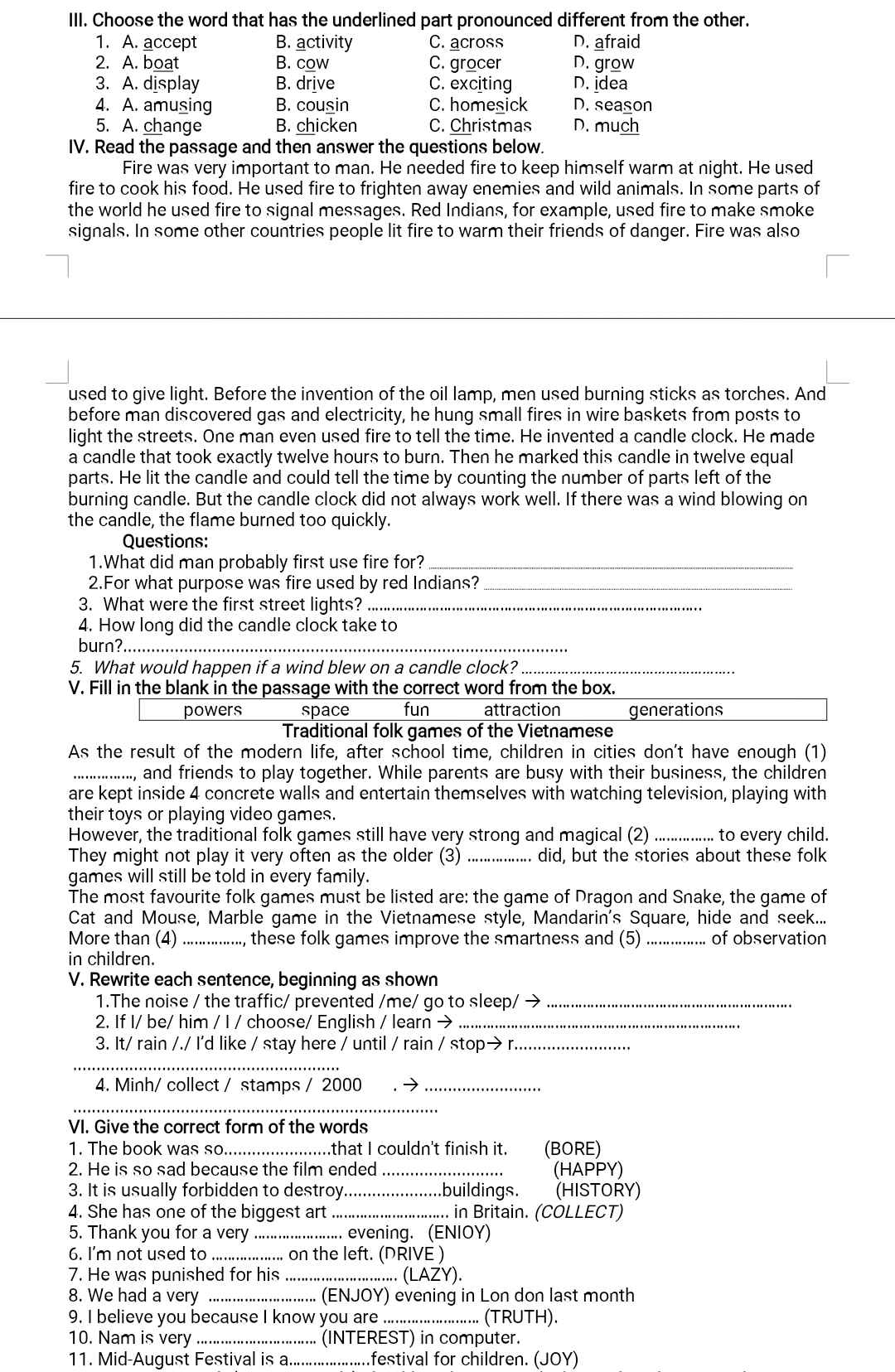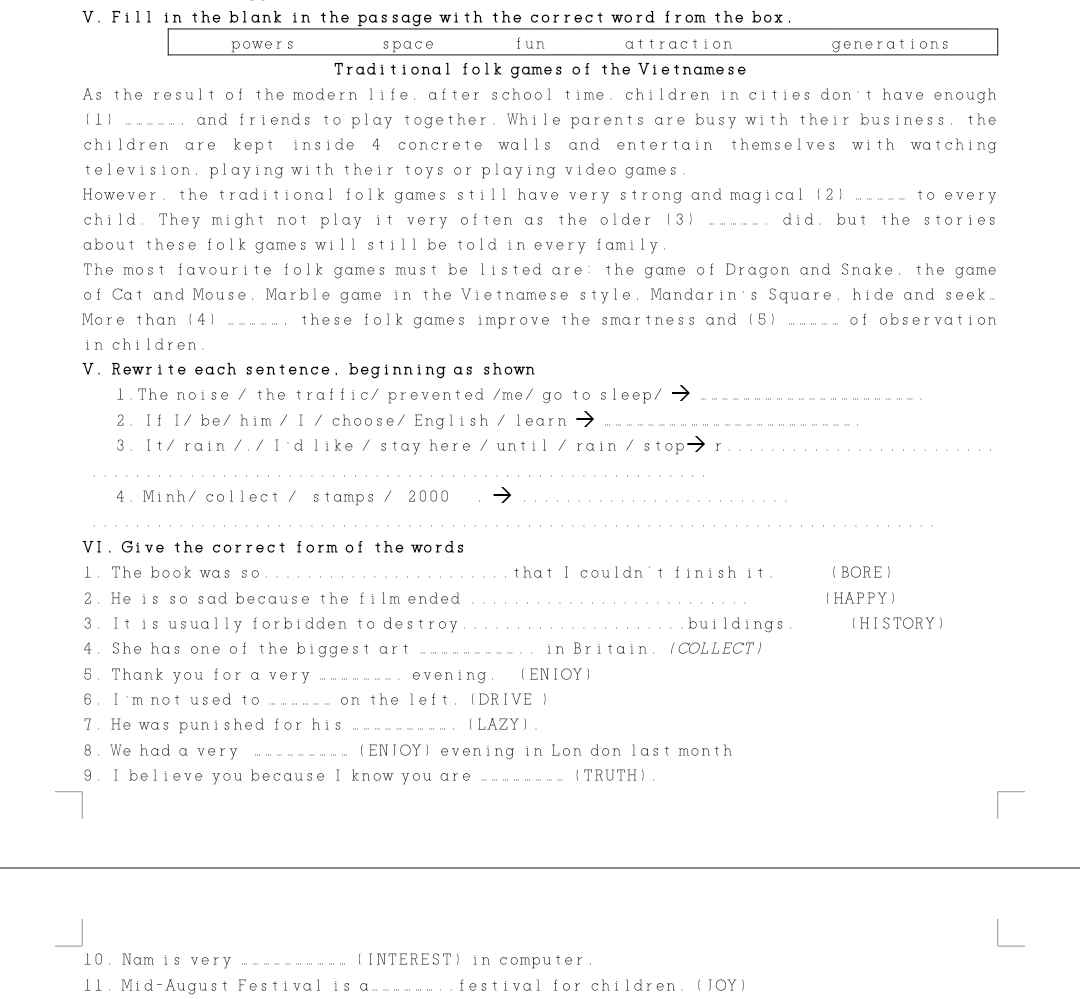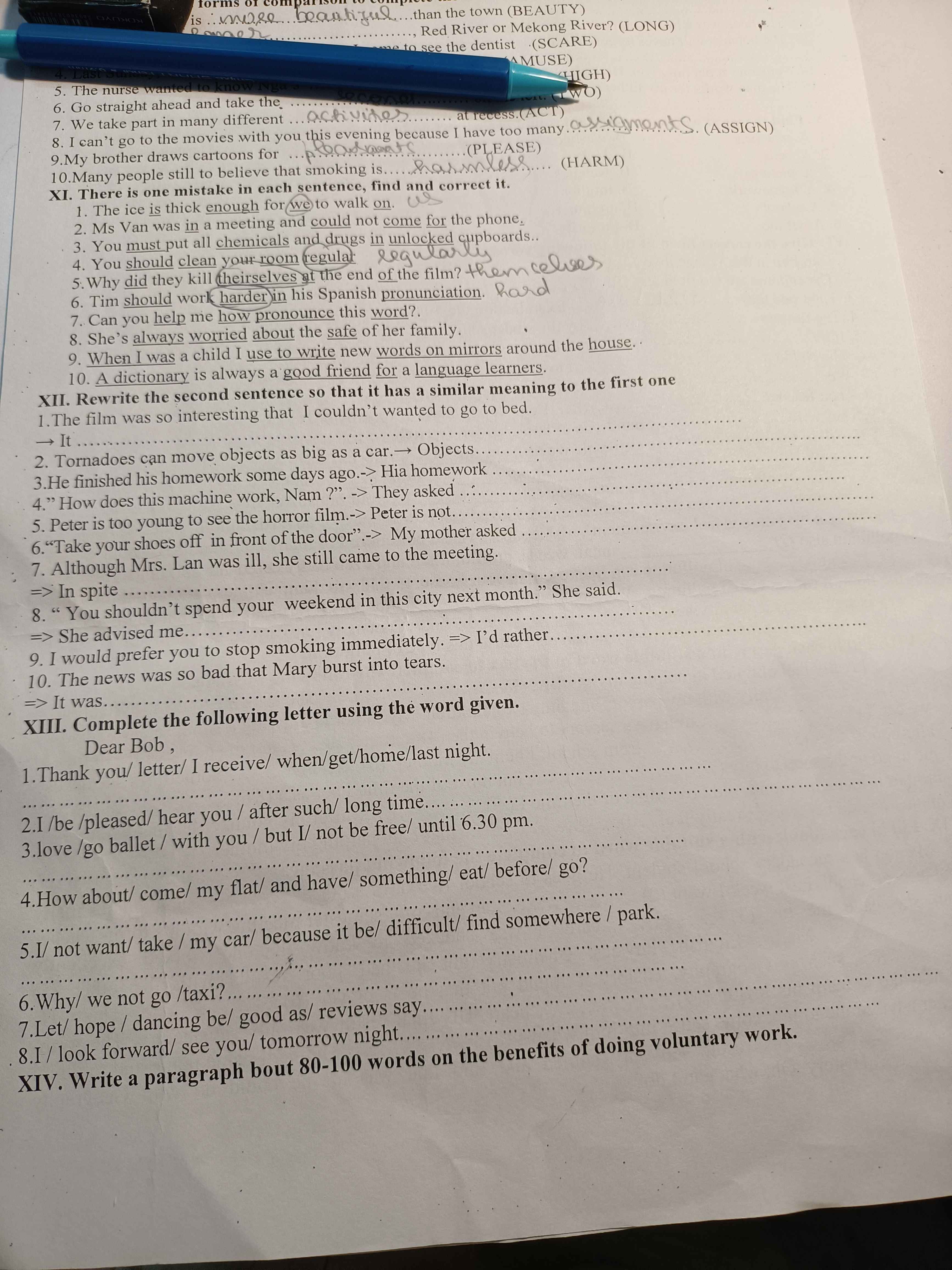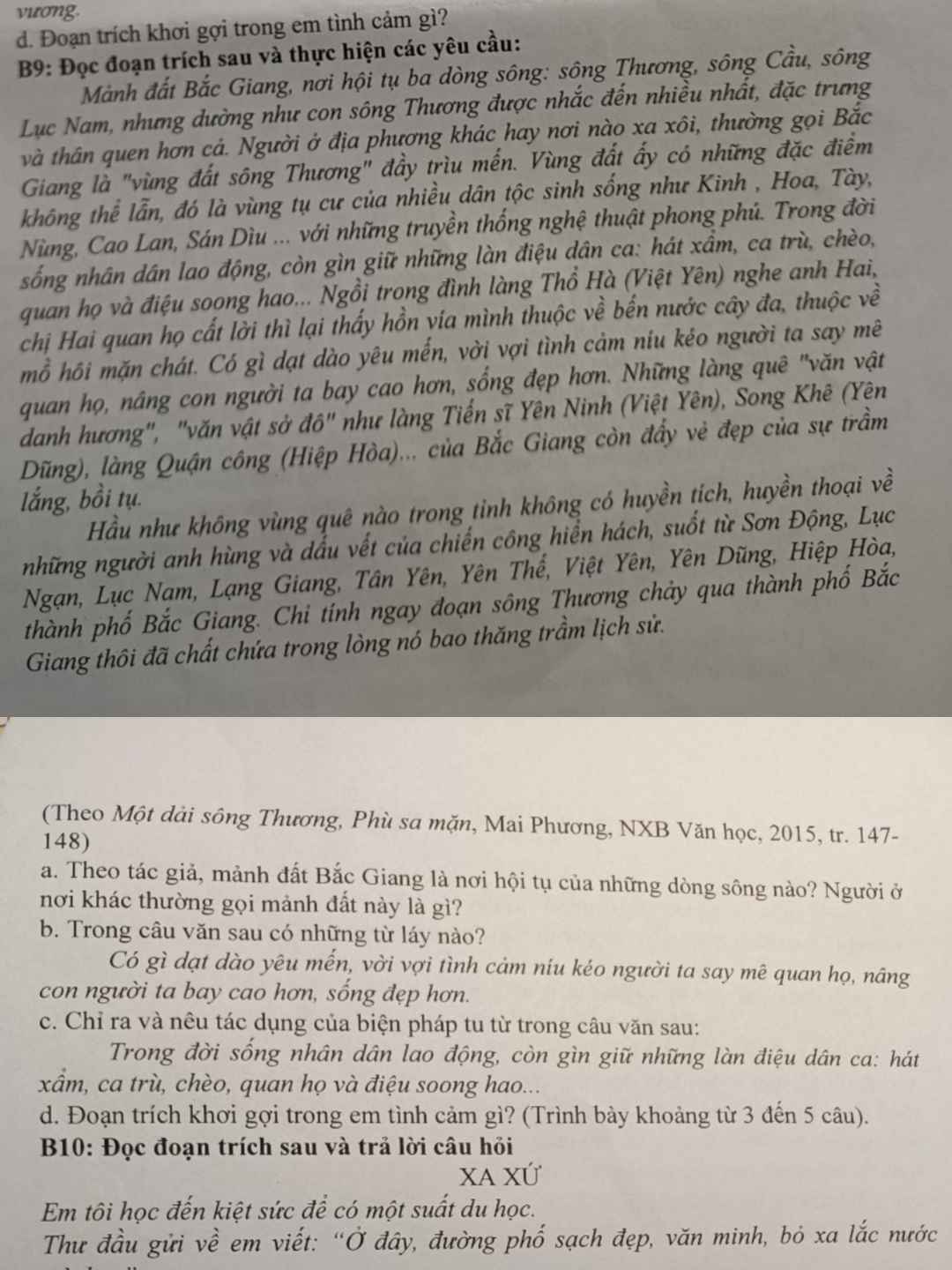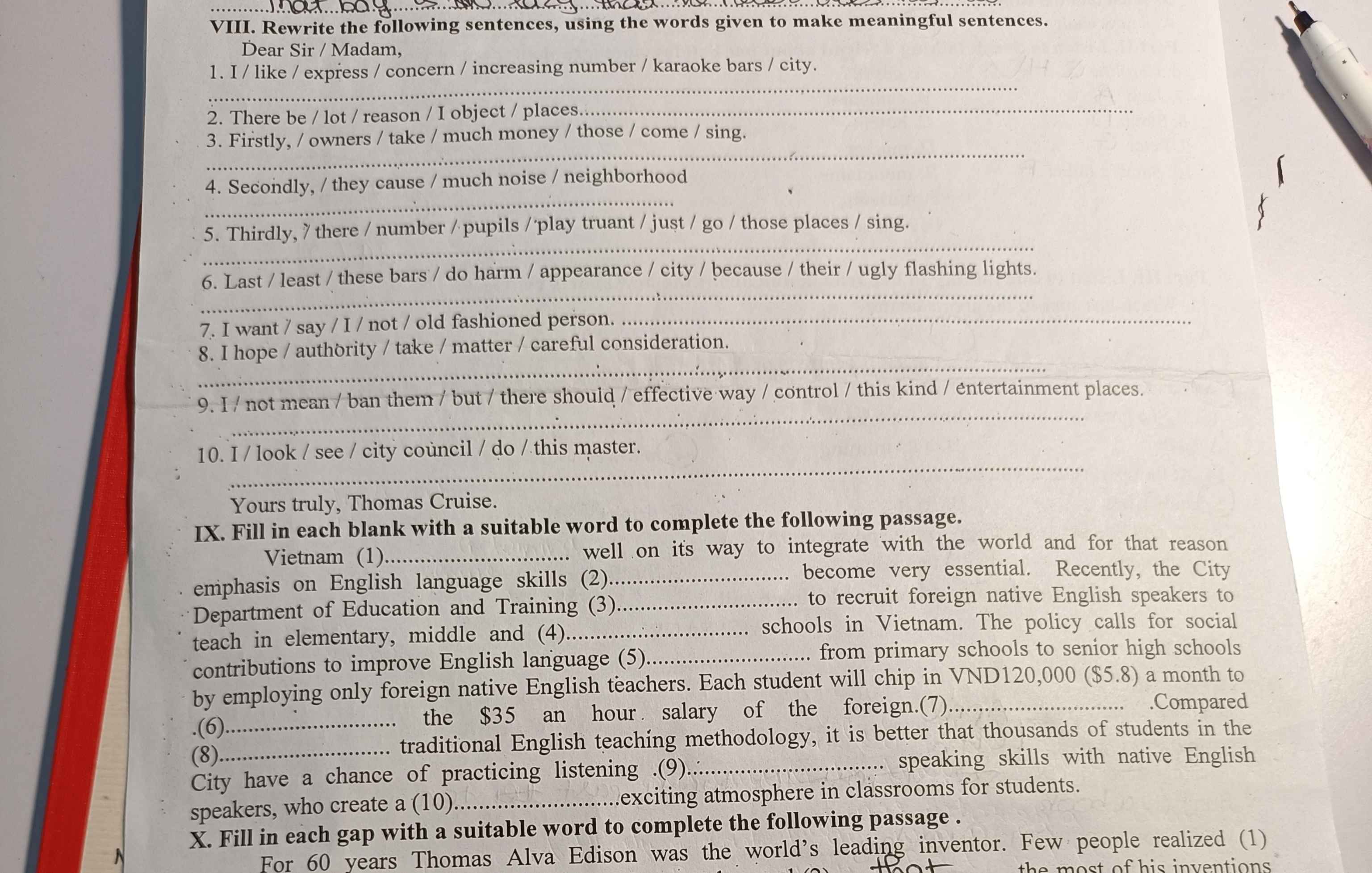Giúp mình bài 6,7,8 với ạ

Học tại trường
Chưa có thông tin
Đến từ
Chưa có thông tin , Chưa có thông tin
Số lượng câu hỏi
22
Số lượng câu trả lời
5
Điểm GP
0
Điểm SP
0
Người theo dõi (0)
Đang theo dõi (0)



ENGLISH AROUND THE WORLD
English is the first language of many people in countries outside the United Kingdom. When you (1)______ speakers of English from around the world, you (2)______ notice that they do not all speak in the same way. There are also some (3)______ in the words they use, including the names of (4)______ objects that are part of everyone’s daily life. But although pronunciation and (5)______ are not the same everywhere, it is interesting that English speakers (6)______ opposite sides of the world can understand (7)______ other quite easily. It does not seem to (8)______ where they learnt the language. And of course this is one reason why speakers of other languages are keen (9)______ learning English too. If you know English, you are more (10)______ to be able to study or work in all sorts of exciting places, such as the United States or Australia.
1. | A. recognise | B. meet | C. find | D. attend |
2. | A. originally | B. strangely | C. curiously | D. immediately |
3. | A. mistakes | B. corrections | C. changes | D. differences |
4. | A. common | B. popular | C. favourite | D. general |
5. | A. reading | B. composition | C. dictation | D. vocabulary |
6. | A. to | B. in | C. from | D. at |
7. | A. each | B. one | C. the | D. some |
8. | A. mind | B. care | C. matter | D. worry |
9. | A. by | B. on | C. to | D. for |
10. | A. likely | B. certainly | C. possibly | D. luckily |
*VIII. Read and find a suitable word to fill in each numbered blank to complete the following passage
JACK LONDON
Jack London (1876 – 1916) is an American writer whose work combined powerful realism and humanitarian sentiment. He was (1) ………......... in San Francisco. After finishing grammar (2) ………..........., Jack London worked at various jobs and in 1897 and 1898 he participated (3)....................... the Alaska Gold Rush. Upon his return to the San Francisco area, he began to (4) ......................... about his experiences. A collection of his short stories, The Son of the Golf, was (5) ..................... in 1900. Jack’s colourful life, during which he wrote more than 50 books and which included enormous popular successes (6) ……...............an orator, ended in his suicide at the (7) ........................ of 40. Many of his stories including his masterpiece The Call of the Wild deal with the reversion of a civilized creature to the primitive state. Jack London’s style – brutal, vivid and exciting (8) ……….…......... him enormously popular outside the United States; His (9) ……….…....... were translated into many languages. Jack’s important works include People of the Abyss about the poor in London; the Sea Wolf, a novel based on the author’s experiences on a seal hunting ship; John Barleycorn , an autobiographical novel about Jack’s struggle (10)............................... alcoholism.
*IX. Read the passage and choose A, B, C, D for each of the following questions.
At birth, the infant has only the most elementary emotional life. Newborns show an expression of disgust, for example, in response to strong tastes and show surprise in reaction to sudden changes. They also show interest, which developmental psychologists consider an emotion in its own right.
By 10 months, infants display the full range of what are considered the basic emotions: joy, anger, sadness, disgust, surprise and fear. The emergence of these basic emotions during the first years or two of life seems to be programmed by biological clock for brain development. As the appropriate brain maturation occurs, the various emotions appear in an infant’s repertory. For example, studies of brain activities in ten-month-olds show that the right frontal regions are more active during positive emotions and the left during negative emotions.
1. Which of the following is not mentioned in the passage as an emotion displayed by a new born?
A. disgust B. interest C. surprise D. fear
2. The phrase “in its own right” is closest in meaning to which of the following?
A. legally B. in fact C. in itself D. on the other hand
3. In the second paragraph, the author uses the analogy of a clock to emphasize which of the following generalizations about infant’s emotional behavior? It …………………………………….
A. emerges rapidly B. has a complex pattern
C. develops with predictable regularity D. may change from one minute to the next
4. Which of the following statements about ten-month-old infants is best supported by the passage?
A. Their various emotional responses are difficult to discriminate
B. Their emotional range is wider than that of newborns.
C. Their behavior is affected only by positive emotions.
D. Their brain activity is greater when they are happy.
5. The ideas in the passage are divided into 2 paragraphs in order to contrast
A. emotional development B. two areas of the brain involved in emotional development
C. the development of two emotional in infants.
X. Rewrite the sentences as directed without changing the original meaning.
1. She started learning English 10 years ago. à She has ...................................... .................................................
2. I haven't seen that man here before.à This ..................................... ...................................................................
3- He ran so quickly that I couldn’d catch him. Ò He was such …………………………………................…..
4- It’s a pity I don’t know how to do it .Ò If only ………………………………………………......................….
5- These shoes will have to be repaired. Ò They will ………………………………….….................…………
6. His parents made him study for his exam. à He was made ..............................................................................
7. I don’t really want to go to the museum. à I’d rather......................................................................................
8. Nobody finished their exercises on time.à Their exercises ..........................................................................
*9. We should go home right now.àIt’s.........................................................................................................
10. Mary doesn't speak English so well as Jane.à Jane .........................................................................................




